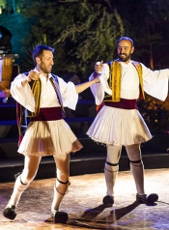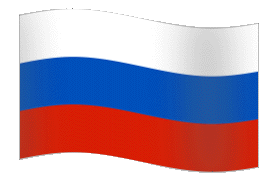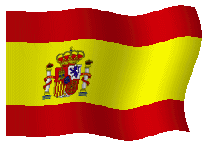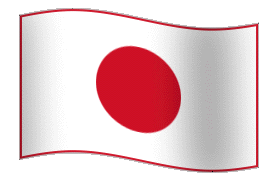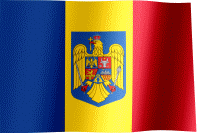|
|---|
ORGANIZATIONS and SOCIETIES |
Organizatia Patrimoniului Român American
A Brief History of the HORA Society Introduction:Fraternal Societies, Romanian Churches, and Schools |
HORA is a California Romanian American Nonprofit Corporation, which, in mutual collaboration with HTRAOC, organizes socio-cultural activities for the Romanian community, supports and organizes Romanian activities both for Romanian Speaking people and everyone else interested in and with affinities towards the Romanian Heritage.
A - The Need for Romanian Fraternal Societies in America
To understand the history of the HORA Society in Los Angeles, it is important to first explore the history of Romanian immigration to the United States. While there are many detailed articles and books on this topic, this summary will offer a more personal perspective on why the HORA Society came into being, alongside the Romanian American Orthodox Church of the Holy Trinity in Los Angeles. When Romanians first arrived in America, they faced many challenges. They found themselves in a new country with little support, living in a capitalist society where protection and medical care were scarce. Many had hoped to return home, but found themselves isolated with no clear way to do so. In this new environment, they had to figure out how to survive, often by following the examples set by other immigrant groups. These groups had established fraternal societies for mutual aid and cultural promotion, as well as ethnic churches to maintain their spiritual traditions. |
As a result, Romanian immigrants began forming their own fraternal societies and churches, which helped them feel connected to their roots and gave them a sense of security and identity. As the sociologist Erich Fromm put it, “This identity gives the individual security. He belongs, he has roots in a structured whole in which his place, his right to be part of that whole cannot be contested. The individual may suffer from hunger or may be under ‘external’ oppression, but he does not struggle in the clutches of the greatest evil - total loneliness and isolation.”
The first Romanian-American societies were created in 1902—"Carpatina" in Cleveland, Ohio, and "Vulturul" in Homestead, Pennsylvania. Over time, these societies grew in number, reaching 44 by 1911, 71 by 1925, and 85 by 1929. Their primary goals were to help members in times of need and to promote Romanian culture, ensuring the preservation of their heritage.
Additionally, the Aromanian community (a group of Romanians with distinct cultural traits) also formed societies to assist each other. These included groups in cities like New York, Rhode Island, and Massachusetts, helping newcomers adapt to life in America.
B - Romanian Churches and Schools
In addition to the hardships of daily life, the Romanian immigrants also felt the absence of cultural and spiritual institutions. They lacked access to schools and churches that could provide them comfort in this unfamiliar land. The deep sorrow they felt, especially during major holidays like Christmas and Easter, was made worse by the absence of a Romanian Orthodox priest to lead them in religious services.
For example, in 1900, Romanians in Cleveland gathered for Easter, but without an Orthodox church to attend, they ended up walking through the fields near Lake Erie, where they celebrated the Resurrection of Christ by sharing in the joy of the holiday. They found comfort in each other's company and in the natural beauty around them.
The need for Romanian Orthodox churches was evident. The first Romanian Orthodox parish in Canada was founded in 1902 in Regina, Saskatchewan, and in the U.S., the first Romanian Orthodox church was established in Cleveland in 1904. Over time, other parishes were founded across the country, including in California.
Fraternal Societies and Orthodox Churches in Southern California
In Southern California, a group of 19 Romanians, led by Mr. Stoica, formed the Romanian Society for Aid and Future Culture in Los Angeles in 1926. This organization was a precursor to the "Holy Trinity" Romanian Orthodox Church, which was officially incorporated in 1940 and became a central institution for the Romanian community in Los Angeles.
From 1940 to 1975, the church operated independently, though it was spiritually part of the Romanian Orthodox Episcopate of America (ROEA).
In 1970, the church resolved its canonical status and became a member of the Orthodox Church in America (OCA).
In 1975, the "Holy Trinity" Romanian Orthodox Church agreed to be governed by the Diocese of Vatra Românească, under the condition that, after the fall of communism in Romania, the church would reunite with the Romanian Patriarchate. However, after years of negotiations, it became clear that the ROEA had no intention of returning to the Romanian Mother Church.
In 2015, the Romanian Patriarchate decided to move forward with its plans to establish a Romanian Orthodox Metropolis in America, electing Archbishop Nicolae (Condrea) as the first Metropolitan of this new jurisdiction.
The Holy Trinity Church, which had long been awaiting the results of the dialogue between the Romania n Episcopate and the Romanian Patriarchate, officially aligned itself with the Romanian Patriarchate's vision. At the Official Installation Ceremony of IPS dr. +Nicolae, as Metropolitan of the Metropolis of ROME, in Chicago, 2016, Holy Trinity Church was represented by a delegation made up of members of the Association of the"Aromanians in Californias".
Establishment of the HORA Society
The HORA Society, founded in 2019, grew out of the work of the "California Aromanians" cultural association and the experience of organizing the 80th anniversary celebration of the "Holy Trinity" Romanian Orthodox Church. This event, held in June 2019, marked a significant milestone in the community's history, and it led to the formation of the HORA Society as an official partner of the church.
The HORA Society was created with the goal of supporting the Romanian-American Orthodox community in California, promoting Romanian and Aromanian heritage, and continuing the work of the Romanian-American community in a more organized and structured way. The society’s activities include cultural events, educational programs, and partnerships with other institutions that share Romanian values.
HORA Society's Mission and Activities
The HORA Society’s mission is to:
-
Collaborate closely with the "Holy Trinity" Romanian Orthodox Church to serve the Romanian community in California.
-
Promote Romanian and Aromanian culture, traditions, and language.
-
Encourage multicultural dialogue and understanding.
-
Organize cultural events such as film festivals, art performances, concerts, and educational programs.
-
Foster partnerships with other institutions that share similar values.
The HORA Society operates as a nonprofit organization, with its headquarters located at the Romanian American Cultural Center, adjacent to the "Holy Trinity" Church in Los Angeles.
Conclusion
The HORA Society represents the next step in the continued growth and development of the Romanian-American community in California. By working together with the "Holy Trinity" Romanian Orthodox Church, the society aims to strengthen cultural ties and promote Romanian heritage for future generations. Through its efforts, the HORA Society hopes to build a vibrant community that honors the past while embracing the opportunities of the future.
Visual presentations through Social Media
It is a well-known expression that a photo speaks louder than 1000 words
HORA is a Romanian association from California, which, in mutual collaboration with HTRAOC, organizes socio-cultural activities for the Romanian community, supports and organizes Romanian activities both for Romanian speakers and for anyone with affinities towards Romanian culture.
The HORA company is registered as a Nonprofit Company, with its official headquarters, by mutual agreement Church/Society, at the address:
Romanian American Cultural Center * Romanian American Cultural Center
(adjacent to the Church)
3315 Verdugo Rd., Los Angeles, CALIFORNIA 90065
By Antoaneta Rastian(Chairman of the HORA Society) |
|---|
 |
|---|
